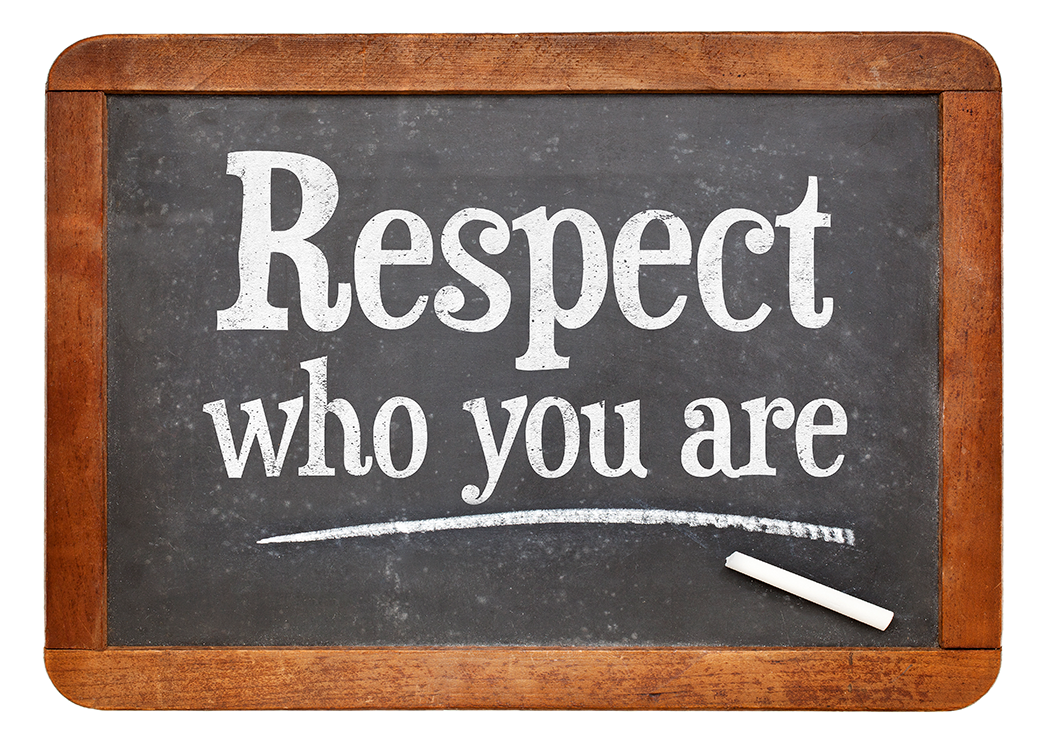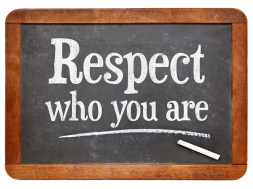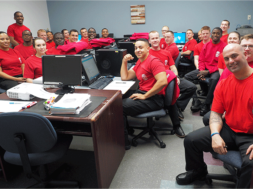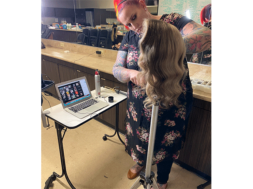
The Use of “Self-Respect” in Staff Development
By George J. Miller, Success Coach, EXCELLENCE through EDUCATION
Goals are important to you. Helping your staff understand this is the key to creating an environment that is productive and supportive in the workplace. Using self-respect as a positive communication tool is in both you and your staffs best interest.
When your staff understands the importance of their input, they are not only helping your school, they are helping themselves and you are creating a win-win situation. This builds trust and encourages them to be more involved in helping to solve problems and get along better with students and fellow employees.
Let’s start by looking at how we can develop and institute self-respect in the workplace.
First, everyone does things that seem stupid sometimes. When this happens help them to understand that by feeling stupid they are holding themselves back from learning from the experience. Help them focus on the “why” they feel the way they do. Doing this will help keep them from feeling bad about themselves and encourages them to see the situation in a more productive and positive light.
“Why” is a powerful and helpful tool to developing self-respect. When people understand “why” they do “what” they do, they become more empowered and that helps to build their self-respect. When people feel empowered they are more creative and functional. They start to ask important questions which help them deal with stressful situations that arise in the workplace. They start to use their imagination in ways that will benefit both you and them.
To quote Einstein: “Imagination is more important than knowledge.” Why do you think he said that? The way I see it is that knowledge is after the fact. Knowledge is what is already known. Knowledge is definitely important, but when we couple knowledge with imagination we create an environment that supports the goals we are wanting to accomplish in much more productive and useful ways. When we help people to use both their knowledge and imagination we create people who are not as dependent on others. We create people who want to help solve whatever situation arises during the day. This empowerment is key to having people work productively. This is the power of self-respect.
There are many ways to manage people, but if the person you are managing resents you in any way it defeats the purpose of “why” you hired them in the first place. Using self-respect techniques to help engage people brings out the best in them. This in turn creates an atmosphere of a very positive and functional work environment.
Be open and honest with yourself. It is impossible to instill self-respect in others without you having it in yourself. Most of the time we are taught “what” to do but not “why” we do it. I call this “structure without substance.” This creates doubt and lack of trust, so people are less able to make a positive contribution to the situation. They may get the job done, but they are not learning how important and valuable they are and this in turn defeats them from developing their own self-worth and self-respect. Self-worth can only be developed by learning to have self-respect.
Look to see how you can improve your relationships with your staff by asking them questions that will help them improve their understanding of whatever it is your wanting them to do.
People want to be helped but they are reluctant when they are directed by people who make them feel “less-than.” Challenge them in a way that gives them the opportunity to open up to you. They are important and valuable people (or why else are they working for you), but if they haven’t developed self-respect their potential will be diminished greatly. When you look at your staff with self-respect they will respond in ways that can only be described as amazing.
Trust as you may already know is foundational in any relationship. When we build self-respect we build trust. Trust is what I call the “glue” in our relationships. Trust is a “feeling” that supports us in ways that build roads to attaining any goal we may have. Trust is courage!
Here is a Plato quote: “All learning has an emotional base.” That being the truth, the more we help our staff “feel” good and trust both themselves and us the more they learn, and when they learn everyone is benefited by their accomplishments. This again can only be accomplished by helping them to develop their self-respect.
By now, I hope I’ve made my point that self-respect is the core of any successful business, institution and or personal relationship. Self-respect is an intangible that when learned cannot be replaced.
You as the person in charge are to be honored and congratulated for having the insight and understanding to help your staff develop this important concept of self-respect. You will be the one given the credit for helping your staff “feel” good about what they are doing and in my opinion more important about how they “feel” about who they are as an individual.
In this article I’m touching on things you may have heard before, but now I’m challenging you to bring action to the table. In my success programs, which is where I’m getting this information, my goal is always to help people become better acquainted with themselves. Action is where the honor of what we do is found. Action is what is seen. Action is what will make all your goals come to fruition.
Here are two quotes by Osho: “Courage is a love affair with the unknown,” and “Life begins where fear ends.” These quotes help me to create ways to help you understand what the true meaning and value of what self-respect is. In understanding that courage is indeed a love affair with the unknown it helps us to go beyond anything we “think” we can do and catapults us into the unknown, and in my opinion that is best done when we give others the tools to better themselves. When we do this our own lives become more meaningful and fulfilling.
Fear is something most of us think we have to “overcome.” I feel that fear is only a lack of self-respect. When we feel secure with ourselves we don’t fear. We understand that other people will more often than not disagree with us. But that (fear) can never stop someone who has developed self-respect.
I would like to share a true personal story that when I look back, I was learning to develop self-respect without knowing what I was doing. Here it is.
When I was just starting out in the beauty profession I was only 17 years old. I really didn’t understand the information I have been sharing with you here. There was a client who was getting his hair cut by the owner of the salon. The client was very wealthy. The owner was intimidated by him. You could tell by the way the owner acted around him. I was so young and excited to be working in a profession that would let me meet anyone that I couldn’t relate to being afraid of him, so I was honest. He was shall I say very rotund. His weight was well over 250 lbs. That didn’t matter to me but the haircut the owner was giving him was all wrong. I was bringing in the new method of cutting hair where I would shape it according to the person’s facial features and take into consideration his overall look. Not just the haircut. The owner was giving him a flat-top. Sides short and flat on the top for anyone young enough not to understand. Anyway I talked to him as a “friend” and explained that the haircut he was receiving didn’t compliment his total overall appearance. He valued the truth in what I was saying and he started coming to me for his grooming needs. We became good friends and looking back I can see how my being truthful and honest were the keys to our friendship. This person owned a commercial heating & plumbing company which was responsible for creating the ovens for “Kentucky Fried Chicken.” Without these ovens KFC could never have become as successful as they did. At that time there wasn’t a commercial oven that could cook more that 5 pounds of chicken at a time (there was no need before the Colonel created the demand for his chicken). During the course of our relationship he taught me that his way of being successful was to “Do what other people won’t or can’t.” I use this information to this day.
The moral of this story is if you are intimidated by people it’s NOT them. It’s You! When we help our staff develop a true sense of self-respect we teach them not to be intimidated and by doing that we open doors that are closed without this information.
Here is my definition of FRIENDS: F. Free R. Relationships I. Independently E. Embracing N. Nurturing D. Desires S. Simultaneously. When we see others as FRIENDS we are engaging ourselves as equals. That being the case, others will respect us and are much more open to do what we ask. This can only be accomplished by having self-respect and teaching it as a way to communicate.
It has been my sincere desire that you the reader has gained a new and functional way to see how self-respect can be used to help you and your staff attain any goal you wish. I thank you for taking the time to read my work.
All intellectual property rights retained by George J. Miller
GEORGE J. MILLER has principally been involved in the Beauty Profession, but has went far and beyond. He has developed companies in many diverse business enterprises. He has created 3 Business and College courses: “The 3 A’s Attitude- Ability & Ambition,” “Success through Self-Respect” & “Excellence through Education.” (an Educators Empowerment program). He has owned & operated Successful Salons for over 20 years. He was the Vice President of 2 national companies. One a national dating service and two a trade show company. He was a contributing Editor for Hair’s How a Professional Beauty publication. He is a published author. He created and introduced “Fantasy Body Art the Art of Temporary Tattoos.” He has been a Professional legal witness in 2 major law suits. In addition he has overseen many fundraising projects including: Aids, Homeless & Child development organizations.
Contact Information: George J. Miller // Success Coach // 949-370-5019 // georgejm@cox.net











